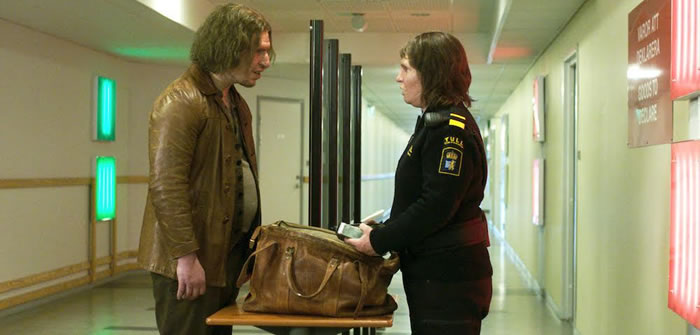Ali Abbasi’s genre-bending Nordic puzzler “Border” won the top prize in the Cannes Film Festival’s Un Certain Regard competition. It emerged victorious in a varied international field of 18 titles from newcomers and established festival favorites alike, with Sergei Loznitsa’s “Donbass,” Meryem Benm’Barek’s “Sofia,” João Salaviza and Renée Nader Messora’s “The Dead and the Others” and Lukas Dhont’s “Girl” completing the list of prizewinners.
The second feature by Iranian-born, Danish-based Abbasi, the classification-defying film — based on a short story by “Let the Right One In” author John Ajvide Lindqvist — centres on a Swedish customs officer with an uncanny sense of smell, thrown into a moral and personal quandary over a suspicious traveler that upends the world as she knows it. Screening early in the festival, it swiftly became one of the buzziest titles in the section with critics and audiences alike. Variety critic Alissa Simon was among the yay-sayers, predicting “cult classic” status for “an exciting, intelligent mix of romance, Nordic noir, social realism, and supernatural horror that defies and subverts genre conventions.”
The film immediately inspired heated competition among buyers, with hip new U.S. distributor Neon — the outfit behind Oscar winner “I, Tonya” and upcoming Sundance sensation “Assassination Nation” — snagging North American rights. “Border” is only second foreign-language title in their portfolio, following French feminist thriller “Revenge”; Neon is evidently counting on strong arthouse crossover potential for Abbasi’s film.
Though Abbasi, who was not present at the ceremony, received some attention for his 2016 debut, the Berlinale-premiered art-horror exercise “Shelley,” “Border” marks a clear breakout for the 37-year-old writer-director. The Best Director prize on the other hand, went to an auteur with established Cannes credentials: Ukraine’s Sergei Loznitsa, who opened the Un Certain Regard section with his fevered, surreal war study “Donbass.”
A sometime docmaker who continues to experiment radically with form in his narrative work, Loznitsa has been in Competition at Cannes three times, most recently with last year’s harrowing anti-administration protest “A Gentle Creature.” That he was dropped to the lower-profile Un Certain Regard strand with his latest, a study of conflict between Ukrainian nationalists and Russia’s Donetsk People’s Republic, suggests Cannes selectors may have deemed it more of a niche item than his previous work.
Variety’s Jay Weissberg agreed, forecasting that the film would “struggle to find audiences beyond Loznitsa fans,” but was nonetheless impressed by “[a scream] against a society that’s lost its humanity and can’t be bothered to care.” Loznitsa, also not present at the ceremony, sent a statement both thanking the festival and protesting Russia’s imprisonment of Ukrainian filmmaker Oleg Sentsov.
A third absent winner was Victor Polster, the 16-year-old star of Belgian entry “Girl,” who received the prize for best acting performance in the festival. The newcomer received rave notices for his moving, physically demanding portrayal of a transgender girl fighting to realize her dreams of being a ballerina, even as his casting reignited the ongoing debate over the acceptability of cisgender actors playing trans roles. Variety‘s Peter Debruge describedPolster’s work as “stunning,” emphasizing the challenges of a part requiring not just refined thespian skill but impressive dance ability.
Source Varitey

